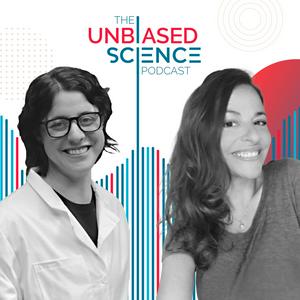In this episode, Jess welcomes Dr. Liz Marnik and Dr. Irini Hadjisavva to explore the multifaceted nature of inflammation and its impact on health. The scientists distinguish between beneficial and harmful inflammatory responses while addressing the challenges of accurately measuring inflammation in clinical settings. They examine common misconceptions surrounding gut health, including the pitfalls of direct-to-consumer microbiome tests and the myth of leaky gut syndrome. The conversation also addresses dietary approaches to supporting gut health and discusses the concerning rise in colorectal cancer rates among younger adults. Throughout the episode, the experts emphasize evidence-based approaches to understanding inflammation while concluding with an encouraging message about the importance of community support in navigating complex health challenges.
Watch the conversation on YouTube: https://youtu.be/kSFesWsw-NU
(00:00) Intro & Public Health Update
(05:33) What's A Health/Science News Item That Caught Your Attention?
(07:25) What Is Inflammation Actually?
(10:26) Is Inflammation Something We Can Measure?
(14:16) Are Microbiome Tests Accurate?
(16:56) Are There Dietary Approaches To Support Gut Health?
(21:30) Inflammation And Autoimmune Diseases
(24:18) Is Leaky Gut Real?
(29:12) The Rise In Colorectal Cancer
(33:14) What's Giving You Hope In Public Health And Science Right Now?
https://www.instagram.com/sciencewhizliz/
https://www.instagram.com/thosenerdygirls
https://www.instagram.com/dririnih/
https://fromthescienceclass.substack.com/
https://thosenerdygirls.substack.com/
-----------------------------------------------------------------------------------------------------------------------
Interested in advertising with us? Please reach out to
[email protected], with “Unbiased Science” in the subject line.
PLEASE NOTE: The discussion and information provided in this podcast are for general educational, scientific, and informational purposes only and are not intended as, and should not be treated as, medical or other professional advice for any particular individual or individuals. Every person and medical issue is different, and diagnosis and treatment requires consideration of specific facts often unique to the individual. As such, the information contained in this podcast should not be used as a substitute for consultation with and/or treatment by a doctor or other medical professional. If you are experiencing any medical issue or have any medical concern, you should consult with a doctor or other medical professional.
Further, due to the inherent limitations of a podcast such as this as well as ongoing scientific developments, we do not guarantee the completeness or accuracy of the information or analysis provided in this podcast, although, of course we always endeavor to provide comprehensive information and analysis. In no event may Unbiased Science or any of the participants in this podcast be held liable to the listener or anyone else for any decision allegedly made or action allegedly taken or not taken allegedly in reliance on the discussion or information in this podcast or for any damages allegedly resulting from such reliance. The information provided herein do not represent the views of our employers.
Learn more about your ad choices. Visit megaphone.fm/adchoices


